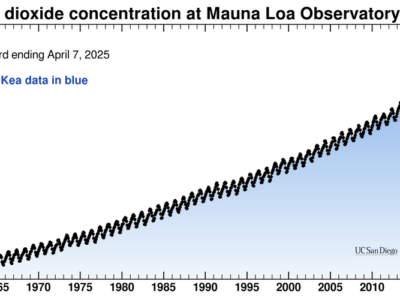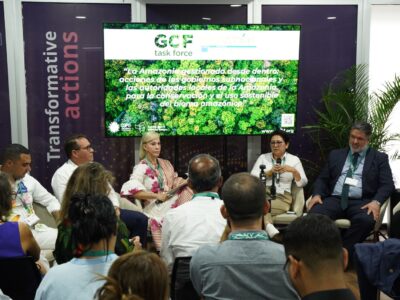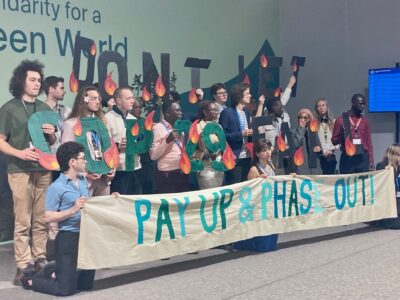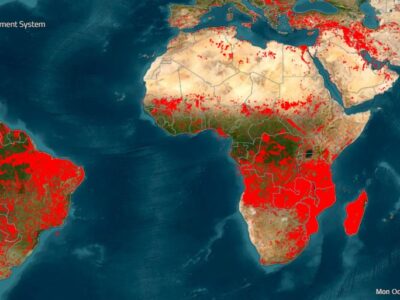International Environmental Law
The Problem is Not Brazil. The Problem is COP
The Drain is a weekly roundup of climate and environmental news from Legal Planet.
“Crazy.” That’s how one young Brazilian described what’s happening in Belém to get ready for COP30, the annual UN climate negotiations which will take place in the Amazon this November. We struck up a brief conversation while I was visiting the Museu Afro Brasil in São Paulo, a museum that chronicles the history and culture …
Continue reading “The Problem is Not Brazil. The Problem is COP”
CONTINUE READINGBrazil Steps Ahead of the U.S. on Climate Policy
A new emissions trading system is a major step for Brazilian climate policy.
Hopefully, Brazil’s actions will encourage other countries, particularly in South America, to take similar actions. The EU and California have been leaders in this arena, but carbon trading systems are now beginning to get traction outside of the developed world in China and now Brazil. That’s an encouraging sign.
CONTINUE READINGTouched by the Keeling Curve
Teaching the Keeling Curve in International Environmental Law has me reflecting on the role of climate science then and now.
Teaching the climate change unit last week in my International Environmental Law and Policy class, I found myself so moved that I started crying at the board. My poor students thought I was in distress. I was simply telling the story of the Keeling Curve. That’s a daily record of global atmospheric carbon dioxide concentration devised by …
Continue reading “Touched by the Keeling Curve”
CONTINUE READINGAre Climate Pledges on Life Support?
A Q&A with Catherine McKenna, who led the UN Secretary General’s High-Level Expert Group on Net-Zero Commitments of Non-State Entities.
Catherine McKenna knows firsthand how to persist in the face of pushback on climate policies. She was Canada’s Minister of Environment and Climate Change during the first Trump Administration, and she led negotiations of that country’s first national climate plan over intense oil industry opposition. “The oil sands sector and the politicians they sponsor aren’t just greenwashing a product,” …
Continue reading “Are Climate Pledges on Life Support?”
CONTINUE READINGWhat Will 2025 Bring in Global Climate Finance?
Last year, international negotiations continued to disappoint on global climate policy, forests, and finance. This year, subnational governments must continue to lead.
As they have for many years, nations came together in 2024 at various climate-related events to push for a brighter future. From the 16th Conference of the Parties (COP) to the Convention on Biological Diversity in Cali, Colombia in October 2024, followed immediately by COP29 to the United Nations Framework Convention on Climate Change (UNFCCC) …
Continue reading “What Will 2025 Bring in Global Climate Finance?”
CONTINUE READINGSix Things to Know about Rights of Nature
More than 500 Rights of Nature laws and policies have been passed globally. Here’s how to make sense of this nascent movement — or movements.
This Fall, I have been co-teaching a course on Rights of Nature with the historian Jill Lepore. This is the first time either of us have taught the subject and it has proven a wonderful opportunity to explore with our students this emerging movement — one that some have praised as “A Legal Revolution That …
Continue reading “Six Things to Know about Rights of Nature”
CONTINUE READINGWhat’s at Stake in the ICJ Hearings
Representational sovereignty, Indigenous rights, and ecocide are all key to the climate obligations of states, write guest contributors Mollie Cueva-Dabkoski, Julia Phượng Nguyễn, and Molly-Mae Whitmey.
A new chapter of global climate accountability has hopefully begun, as the International Court of Justice (ICJ) prepares to issue an advisory opinion on the Obligations of States in respect of Climate Change. Hearings for that opinion began today with over 100 countries and other parties presenting over two weeks. At the request of the U.N. …
Continue reading “What’s at Stake in the ICJ Hearings”
CONTINUE READINGOne Bright Spot to COP29 in Baku
The outcome of this year’s U.N. climate conference was depressing. But there was some notable news regarding global methane emissions commitments.
Some have described the United Nations Climate Change Conference (COP29) in Baku as “challenging,” “ineffective,” and “disappointing.” On the one hand, global greenhouse gas emissions have reached an all-time high, and the temperature for 2023 is the highest ever recorded. On the other hand, President-elect Donald Trump announced his intention to withdraw the U.S. from …
Continue reading “One Bright Spot to COP29 in Baku”
CONTINUE READINGWhat’s Making this COP Especially Difficult?
Notes from COP29 in Baku, where the subject of real money, U.S. politics, and other tricky factors are converging.
My UCLA colleagues Ted Parson, JP Escudero and I just returned from Baku. Most of our work there related to side talks on advancing methane regulation (and our UCLA project on that topic), but we also got a sense of how the central negotiations were unfolding. As the New York Times and others are reporting, …
Continue reading “What’s Making this COP Especially Difficult?”
CONTINUE READINGGovernors Present Bold Vision for Investing in a New Forest Economy
As global leaders gather in Cali for COP16 and devastating fires continue across the Amazon, we should look to subnational groups for solutions to both the climate and biodiversity loss crisis.
The world has continued to watch as fires burn – yet again – across much of the Amazon basin. With historic droughts and ongoing lack of resources to tackle these fires and their underlying causes, they have ravaged millions of hectares of forests, communities, and wildlife habitat in Bolivia, Peru, Brazil, and beyond. These fires, …
Continue reading “Governors Present Bold Vision for Investing in a New Forest Economy”
CONTINUE READING












